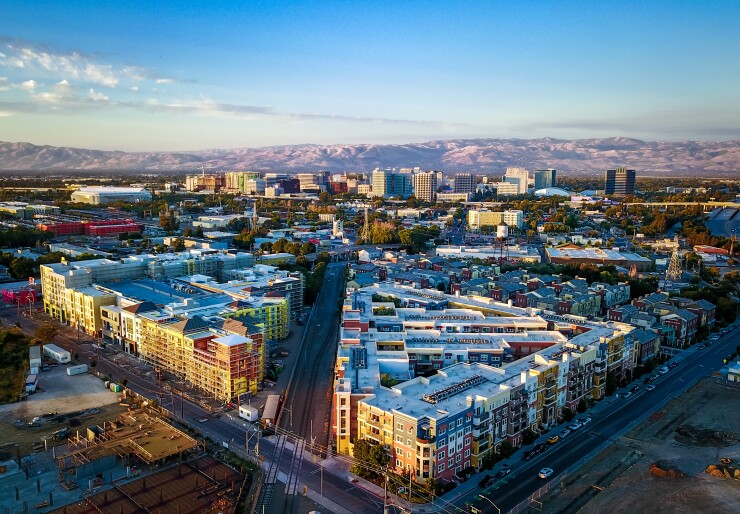San Jose is slowly chipping away at Mayor Sam Liccardo's goal of building 10,000 affordable homes by 2022.
According to a new memo from the city's housing director, Jacky Morales-Ferrand, 1,100 apartments were either completed, under construction or approved by the end of March, meaning the city still needs to add 8,900 units in the next three years to meet the goal, which Liccardo announced in 2017.

Just 30 units — at The Metropolitan on Monterey Road — were ready for residents to move in, while another 754, including Villas on the Park, a development near St. James Park downtown set to house formerly homeless individuals, and the Leigh Avenue Senior Apartments, were under construction. At the end of March, Second Street Studios was still in the under-construction category, but the complex — the city's first permanent supportive housing project — opened in May.
Of the 754 units listed as under construction, around 480 are slated to go to formerly homeless individuals, with the rest reserved for families and individuals making up to half the area's median income — around $53,200 for two people.
Another 2,229 affordable apartments were expected to be approved and added to the pipeline, the memo said.
"If the proposed projects complete the entitlement process and receive a funding commitment, this would bring the city more than a quarter of the way to the 10,000 unit goal," Morales-Ferrand wrote. "Further, in the pipeline there are 1,429 affordable apartments to be preserved."
The projects are supported by millions of dollars in financing from San Jose, the Housing Authority of Santa Clara County and the county itself. But even with subsidies from the city, developers grappling with high labor and material costs are more interested in building market-rate homes instead.
And while the city will need to speed up production of affordable housing to meet its goal, there is some good news. According to the memo, "no affordable apartments were lost or ceased to be income-restricted from the affordable housing stock," which currently includes nearly 21,000 apartments for low-income people.




